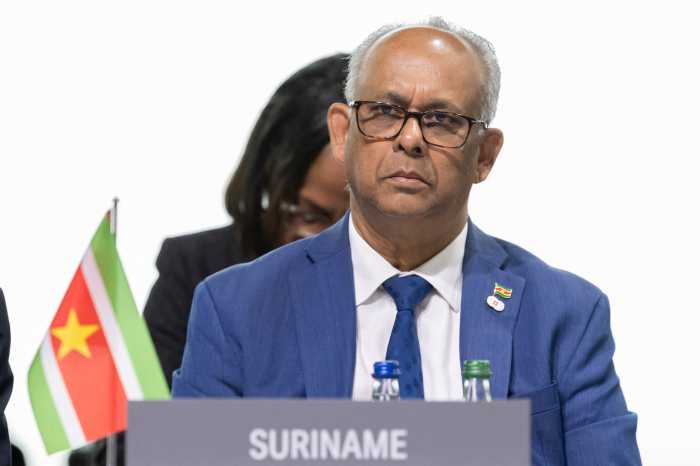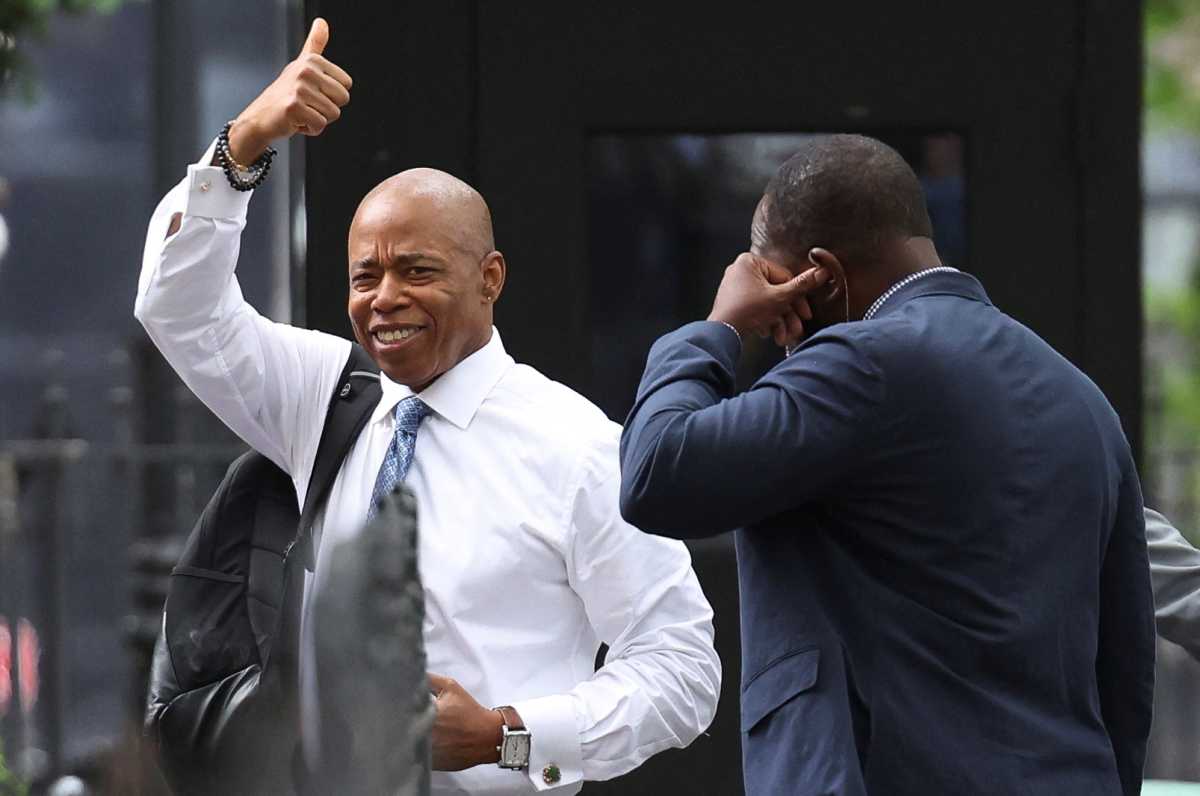Caribbean
Four CARICOM nations voted to suspend Venezuela from the OAS.
Four Caribbean countries — Jamaica, Bahamas, Barbados and Guyana — were among 19 countries who recently voted to support a resolution to suspend Venezuela from the 34-member Organization of American States (OAS).
But, Dominica, St. Vincent and the Grenadines voted against the measure, while Belize, Grenada, Haiti, St. Kitts-Nevis, St. Lucia, Suriname and Trinidad and Tobago were among 11-member states that abstained during the vote.
The resolution was spearheaded by the United States as it condemned President Nicholas Maduro’s re-election last month.
OAS members have expelled only two nations in history.
Cuba was forced out in 1962 and Honduras was suspended briefly following a 2009 military coup.
The ban on Cuba was lifted in 2009, but the communist Caribbean country rejected re-joining the organization.
Venezuelan Foreign Minister Jorge Arreaza said Caracas rejected the OAS Assembly’s decision and it would enable the United States to continue its “economic war” against the socialist government.
U.S. representative to the OAS, Carlos Trujillo, said he was pleased with the vote.
The resolution adopted at the OAS’ fourth plenary session, states that the elections did not comply with international standards, failed to meet the participation of all Venezuelans political actors and were “carried without the necessary guarantee for a free, fair, transparent and democratic process.”
Antigua
Antigua and Barbuda Prime Minister Gaston Browne said he is disappointed by the participation by heads of the Organization of Eastern Caribbean States (OECS) at a recent seminar on air transport in the region.
Browne was the only head of government at the seminar entitled “Air Transport Competitiveness and Connectivity.”
An expert document was prepared by the Caribbean Development Bank, which identified the issues without answers but in terms of getting the leaders at the seminar to get a commitment, noting that without commitment, implementation would remain protracted.
LIAT is a majority-owned by 11 Caribbean governments, the largest shareholders being the governments of Barbados, Antigua and Barbuda and St. Vincent and the Grenadines.
Browne, who in the past has criticized other leaders for not supporting the airline said some are very narrow in their thinking about supporting LIAT financially.
He expressed hope that the CDB could bring all the heads together to fix the problem and ensure that there is economic resilience going forward.
The prime minister said LIAT is under-capitalized, suffering under a mountain of debt and lacking sufficient assets.
Barbados
The International Monetary Fund (IMF) is sending a delegation to Barbados to assist the island in its plans for revitalizing the ailing economy.
Newly-elected Prime Minister Mia Mottle has already indicated that her administration would not be averse to seeing support from the Washington-based financial institution.
IMF Managing Director Christine Largade quoted Mottley as saying that the Barbados economy has been going through significant challenges for some years.
She said the authorities are developing an economic reform plan designed to address these challenges, and have asked the international community and the IMF to assist them as they put the economy back on a part to recovery.
Largade said that an IMF team led by Bert van Selm will be visiting Bridgetown to start discussions on how the Washington-based financial institution can support the authorities.
“Our ultimate goal is to help Barbados achieve high living standards and more inclusive growth for the years ahead,” she said.
Recently Mottley announced that her new Barbados Labor Party (BLP) administration would suspend payments due to domestic and external creditors.
Grenada
The Grenada government has created a new ministry to deal with the effects of climate change.
Speaking at the recent opening of the Caribbean Development Bank’s 48th annual board of Governors in Grenada, Dr. Mitchell said the Ministry of Climate Change, Environment, Fisheries, Forestry and Disaster Management is mandated to work to ensure that every area of Grenada development is up to speed on the question of addressing climate change.
Noting that the hurricane season began on June 1, 2018, Dr. Mitchell, whose island was ravaged by Hurricane Ivan in 2004, said it is time for the Caribbean to adjust to the new normal and recognize that the super hurricanes of 2017 won’t be the last time.
“Adjusting to the new normal requires comprehensive and coordinated efforts to mainstream climate change considerations in development planning. In practice, this will require a shift in focus. From sustainable development to climate-smart sustainable development,” he said.
Jamaica
The Jamaica Constabulary Force (JCF) has reported that up to June 3, 2018, all categories of serious and violent crimes have started moving down since the start of the year when compared to the same period last year.
A release from the JFC Communications Unit showed there is an overall 9.6 percent reduction in serious and violent crimes for the period under review.
It said murder is down by 16 or 2.6 percent when compared to the corresponding period last year, while 14 less shootings occurred — a reduction of 2.7 percent, 57 percent (24.8 percent) less cases of rape were reported and aggravated assault is down by 32.8 percent.
Police said the two divisions under a state of public emergency continue to be positively impacted by the heightened presence of the security forces.
St. James, the release said, continues to record reductions in murder with 78 fewer murders (66.1 percent) reported over the period, while shootings went down by 45, a reduction of 49.5 percent.
The police noted that the St. Catherine North Division, for the first time this year, has recorded no increase in murders and is seeing less cases of shootings — 12.2 percent reduction, when compared to the same period last year.
“There have been 59 reported cases of murder in the division since the start of the year compared with the same figure for the comparative period, which represents no increase,” the release stated.
St. Kitts
Commander of the St. Kitts-Nevis Defense Force, Lt. Col. J. Anthony Comrie, says there is a need for closer collaboration between security agencies across the Caribbean region, as he welcomed security and enforcement personnel to the start of Exercise Tradewinds 2018 (TW18).
The first phase of the annual exercise will run from June 4 to 23 in St. Kitts and Nevis and features troops and law enforcement officials from 20 partner countries, including several CARICOM member states, the United States, the United Kingdom, France, Canada and Mexico.
Comrie said strengthening partnerships is particularly important given the growing proliferation of drugs and illegal guns in the region.
The theme for Exercise Tradewinds 2018 is “Capacity Development through Integrated Training and Exercises to Confront National Security Challenges of the 21st Century.”
Trinidad
A High Court judge in Trinidad and Tobago is calling on the Ministry of National Security to provide training for police officers following the recent passage of the controversial Anti-Gang Act.
Justice Frank Rampersad said laws are only effective so far as they are properly enforced, adding that “the T&T Police Service needs highly trained units to investigate members of gangs.”
He noted that the state had been ordered to pay millions of dollars in compensation to dozens of others, who claimed they were falsely imprisoned without the option of bail before their charges were eventually discontinued by the Office of the Director of Public Prosecutions (DPP).
Hundreds of suspected gang members were held when former Prime Minister Kamla Persad-Bissessar called a state of emergency in 2011 when the murder rate went out of control.
They were all freed as the police did not have sufficient evidence to successfully prosecute them.
— compiled by Azad Ali
























